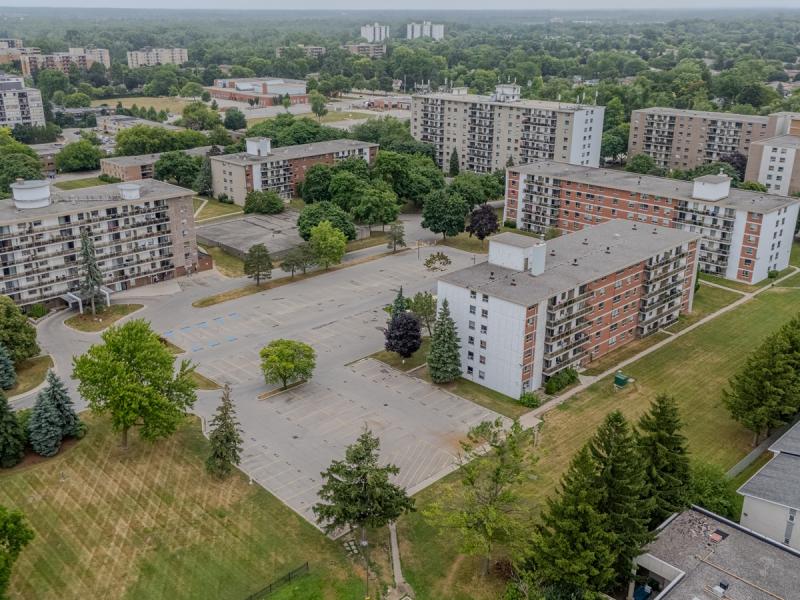
Michael J. Cooper is president and chief responsible officer of Dream, as well as chair and CEO of Dream Office REIT. (Courtesy Dream)
A panel of senior real estate executives shared insights about their companies and the state of the industry to conclude the 17th annual Land & Development Conference, which is based in Toronto but offers a national overview.
Jodi Shpigel, project lead for First Capital’s 2150 Lake Shore, and KingSett Capital group head of development Jeff Thomas moderated the event, which was held virtually for the second consecutive year due to COVID-19 restrictions.
They were joined by: Dream president and chief responsible officer Michael Cooper; Fengate managing director and group head of real estate Jaime McKenna; Fiera Real Estate president and head of global real estate Richard Dansereau; and Trinity Group president and chief executive officer Fred Waks.
The ongoing effects of the pandemic played a role in insights from each of the panelists. However, because of the diversity of asset classes in which their companies are involved, they provided a wide-ranging overview of strategies which have been employed to mitigate its impact, capitalize on opportunities and prepare their firms for the coming recovery period.
Dream
“We made a big commitment into measuring our returns, both financial as well as social, as part of our impact investing strategy,” said Cooper on Dream’s focus during the pandemic.
This includes putting an emphasis on mixed-use affordable market housing, making its real estate and operations more inclusive, and making its buildings less harmful to the environment.
“We’re looking at our leases to see how we can make it easier for women-led businesses and other underserved groups to enter into leases with our organization,” said Cooper.
Dream has been hiring during the pandemic and Cooper said it has the best management team in company history, which has helped provide resiliency and increased its liquidity.
Dream Office sold 140 of its 172 buildings from 2015 to 2019 because Cooper didn’t think those it disposed of would be able to compete in the future. The REIT also ensured the older assets it decided to keep will continue to “have a great life ahead of them,” Cooper added.
Cooper said people have been thinking more about where they live since the onset of the pandemic and he believes they’re probably investing more of their disposable income toward that fundamental need.
Fengate

Jaime McKenna, managing director and group head of real estate for Fengate Asset Management. (Courtesy Fengate)
McKenna spoke about Fengate’s exposure to both student housing and seniors housing, two asset classes dramatically impacted by the pandemic.
“Student housing was the most dramatic because, within five minutes, we went from 100 per cent occupancy to 20 per cent occupancy,” she said.
Fengate’s Seasons Retirement Communities limited the impact of COVID-19 via a strong focus on the management of its staff, according to McKenna.
“Whether it was bonuses or other initiatives, we really focused on retaining staff, making them feel safe and making them feel valued, because if they were there we were going to be able to do the best job for our tenants.”
McKenna said Fengate didn’t let COVID-19 drive or force changes to its portfolio strategy. The firm has, however, spent the past 18 months “trimming around the edges” and shedding assets that don’t fit its long-term goals.
Fengate has also internalized much of its development with the creation of a new team, said McKenna, and is making sure it’s partnered with like-minded developers.
Two-thirds of immigrants rent housing after arriving in Canada and the immigration floodgates are expected to open before the end of the year after being largely closed during the pandemic.
While Toronto and Vancouver apartment occupancies suffered due to the lack of immigration and young people moving back home with their parents, McKenna believes that will turn around in the next six to 12 months.
McKenna said communication has become disjointed since most office workers have been doing their jobs from home. She doesn’t see this as a feasible long-term solution although she’s open to some form of hybrid of the traditional five-days-in-the-office workweek.
Fiera

Richard Dansereau, president and head of global real estate of Fiera Real Estate. (Courtesy Fiera Real Estate)
Dansereau noted industrial properties, rental apartments and life sciences facilities are generating the most interest throughout North America and Europe.
Transactions slowed last year due to the market uncertainty caused by the pandemic. A lack of acquisition opportunities has created pent-up demand and capital, which has been sidelined since March 2020.
“We’ll be looking at a more stable market, but, for the time being, if you’ve got a good quality industrial building in the GTA (Greater Toronto Area), you’ll have a lot of bids,” said Dansereau.
Touching on a theme also raised by McKenna, Dansereau said increased immigration is important to the real estate industry and vital to the economy in general.
“We need more people to help pay for the debt that we’ve accumulated through this pandemic. And if you look at the statistics, the expectation is that, by 2040, people 65 years or older will represent 25 per cent of the population. Today that’s 17 per cent.”
Dansereau said 86 per cent of Fiera employees were anxious to return to the office, but that same percentage was also keen on being able to continue to work remotely a few days a week. He expects offices to more closely resemble pre-pandemic occupancy levels and patterns later in 2022.
Trinity
Waks said Trinity is largely focused on the GTA and Ottawa markets at the moment, but is also having success with its Trinity Hills at Canada Olympic Park mixed-use development in Calgary.
It will have 350,000 square feet of retail, 250,000 square feet of office space and 2.05 million square feet of residential space upon completion, according to Trinity’s website. Phase one includes 160 residential rental units, a 400-unit seniors home and almost 90,000 square feet of retail.

Fred Waks, Trinity Group president and chief executive officer. (Courtesy Trinity Group)
Montreal and Vancouver are also solid markets, according to Waks. While Trinity doesn’t own industrial space, Waks noted the gap between industrial and retail rents is narrowing due to the recent strengths of the former and weaknesses of the latter.
Waks said the rising costs of concrete, steel and lumber have been having a negative impact on development, especially in the GTA.
“It’s almost impossible to sit there and make any sense of a pro forma today at this point in time because the revenue side has not caught up to the cost side.”
Ottawa used to be a more expensive place to build than Toronto, but Waks said that’s no longer the case.
Waks noted many companies, which used to rely primarily on generating rental income and didn’t have their own development teams, are now forming these groups within their organizations.
Trinity has had more staff turnover than he’d like during the pandemic, but has added motivated young employees with expertise in the multiresidential sector.
Waks was the only person physically located in Trinity’s office while he took part in the virtual panel, and he’s looking forward to the return of colleagues to the workplace.
“We’ve managed to buy, we’ve managed to zone, we’ve managed to sell, we’ve managed to develop and we’ve managed to lease — all the things that you’re supposed to be doing at this time. But I don’t think we’re doing it as well as we could.”











